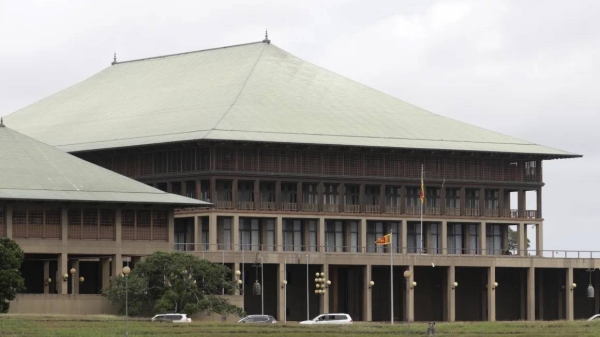
Ministry of Information and Broadcasting to regulate video-streaming platforms, which previously had “free rein”
PATNA: India’s latest directive for all video-streaming platforms, such as Netflix and Amazon Prime, to be regulated by the government, has sent shockwaves through the entertainment industry, with several content creators saying it is the “end of creative expression” on digital channels.
The Ministry of Information and Broadcasting (MIB) — which monitors and censors print and online media, and television, film and theater content — gave notice on Nov. 9 that it will now oversee over-the-top (OTT) or digital platforms as well. These were previously monitored by the Ministry of Technology.
“It’s the end of creative expression in the visual medium,” Tanuj Virwani, who starred in several web series such as “Inside Edge,” “Poison” and “Code M,” told Arab News.
“There will be a dramatic change in the content and the freedom of creative expression on OTT platforms. It was like an open season on digital platforms with unlimited freedom to say and show what we want. That will end,” he said.
Streaming platforms have had a good run in the past few years, especially since March when the coronavirus outbreak and subsequent lockdown led to the closure of cinema halls across the country.
Viewers were switching to OTT platforms that did not have to conform to censorship rules imposed on traditional media — until now.
Officials at Netflix and Amazon, which boast 20 million and 10 million subscribers each, were not available for comment when contacted by Arab News.
However, the two platforms showcased some of the most controversial web series — such as “Mirzapur,” “Paatal Lok,” “Sacred Games,” and “Leila” — pushing the envelope with their bold content, which addressed taboo and politically sensitive topics such as sex, nudity, homophobia, caste issues and Hindu nationalism.
Virwani said that while the “unlimited freedom” on OTT platforms was “abused to some extent,” the ministry should not use it as the yardstick to measure all content.
“The ministry should look at every show on its own merits. There can’t be the same censorial yardsticks for all OTT shows. Often a certain amount of abusive language, nudity and drugs are pivotal to the story,” he said.
Officials at the MIB refused to comment when contacted by Arab News on Monday.
However, Babul Supriyo, Minister of State for Environment, Forest and Climate Change in the Union Council of Ministers, said that certain content on OTT platforms “played a pivotal part” in forcing the MIB to step into the digital domain.
“"Mirzapur" really went overboard with the excessive verbal and visual violence,” he said, referring to the two seasons of the iconic web series produced by Farhan Akhtar and Ritesh Sidhwani.
Film critic turned filmmaker Karan Anshuman, who is the co-creator, co-writer and co-producer for “Mirzapur,” believes the freedom to tell a story should not be curbed.
“It is a wholly avoidable regressive step. There should be no censorship of any kind. It’s simple . . . If you don’t like it, don’t watch it. There are enough technology tools to prevent kids from watching the wrong programs,” he said.
He cited the example of “Girl,” a Belgian film on Netflix, which warned viewers about the film covering “sensitive issues,” which includes “sexual content, graphic nudity and an act of self-harm.”
Central Board of Film Certification (censor board) Chief Prasoon Joshi and his team were unavailable for comment when contacted by Arab News.
However, former censor board chief and actress, Asha Parekh, feels such disclaimers on OTT platforms are “not enough of a disincentive.”
“Just because you warn the audience that the show is suited for only those above 16 or 18, how can you ensure kids won’t watch it? At the same time, you can’t censor content on the Internet. When Amazon cut scenes from director Francis Lee’s gay film "God’s Own Country," he advised audiences not to see it on digital,” she said.
Pahlaj Nihalani, also a former censor board chief and filmmaker, disagrees, adding that checks and curbs on OTT platforms are the “need of the hour.”
“Any and every kind of content is being shown. Many of them have unnecessary use of abusive language just for effect. Censorship should and must be applied to digital shows, and I welcome the I and B ministry’s decision to monitor what goes on the Internet.”
Filmmaker Bejoy Nambiar, whose digital crime drama "Taish" is ruling the Internet, said that he was “appalled” by the curbs.
“It will muzzle us further and limit the ways stories can be told. The content that we make now is not just available here but all over the globe. What happens when we censor a show here, but it’s still available elsewhere?”












